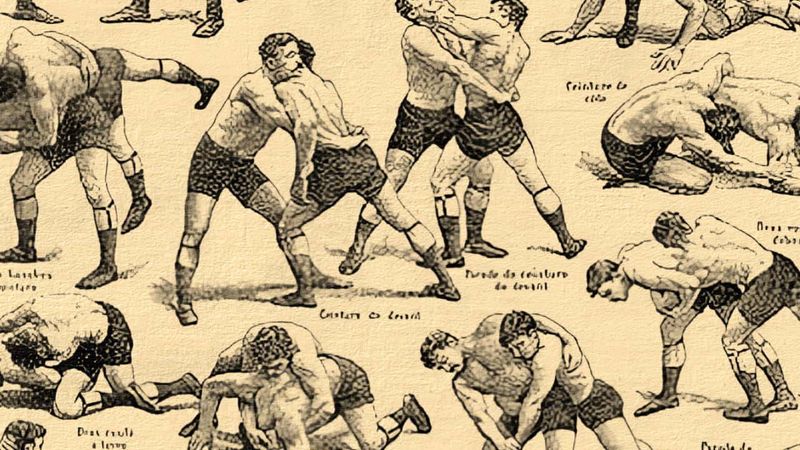Throughout history, various laws have emerged that can only be described as bizarre and absurd.
From unusual restrictions on attire to peculiar regulations about animals, these laws reflect the unique contexts and cultures in which they were enacted.
While many of these laws have long been repealed, their strangeness continues to evoke curiosity and amusement.
Join us as we explore twelve of the weirdest laws from history that are sure to make you shake your head in disbelief.
1. No Ice Cream on Cherry Pie in Kansas

In the late 1800s, Kansas had a peculiar law prohibiting the topping of cherry pie with ice cream.
The origin of this law is unclear, but it was purportedly enforced to preserve the sanctity of the cherry pie tradition.
Although the law is no longer in effect, its mere existence is puzzling and a testament to the eccentricities of food regulations in history.
Today, one can enjoy a scoop of vanilla on cherry pie without fear of legal repercussions, a small victory for dessert lovers everywhere.
2. Must Wear a Smile in Milan

In 19th-century Milan, a law mandated that citizens wear a smile at all times in public places.
This unusual regulation was meant to promote a sense of community and happiness.
Exceptions were made for funerals or hospital visits. Failure to comply could allegedly lead to fines, though enforcement was likely inconsistent.
This law, now obsolete, reflects a utopian desire for perpetual joy, albeit enforced through legal means. It serves as a quirky reminder of attempts to legislate emotion.
3. No Public Flatulence After 6 PM in Florida

An unusual ordinance once existed in Florida, prohibiting public flatulence after 6 PM.
This curious law, possibly inspired by local sensibilities, aimed to maintain public decorum during evening hours.
While violations were probably hard to regulate, the law highlights amusing aspects of civic governance.
Today, such a regulation likely seems laughable, illustrating how societal norms evolve over time, leaving behind remnants of what was once considered proper behavior.
A whimsical piece of history, it showcases humanity’s quest for order.
4. No Kissing on Trains in France

In 1910, France enacted a law forbidding kissing on trains. This was predominantly to prevent delays caused by passionate farewells.
The authorities believed that curbing affectionate goodbyes would enhance punctuality.
The law is no longer in effect, but its existence tells much about the challenges of balancing efficiency with human emotion.
Though amusing today, it serves as a reflection of historical priorities, where timeliness sometimes took precedence over personal expression.
5. No Corsets in Ancient Rome

In Ancient Rome, a ban on corsets was imposed, purportedly to protect women’s health.
The tight-fitting garments were believed to cause harm and hinder movement.
Roman society placed great emphasis on physical strength and beauty, but this law suggests a concern for well-being over mere aesthetics.
While corsets eventually made a comeback in later centuries, the Roman prohibition remains a fascinating insight into early public health measures and societal values.
6. Socks Mismatched in Sweden

In 19th-century Sweden, wearing mismatched socks was considered a sign of madness.
A law was introduced to curb this perceived disorder.
The idea was to maintain social harmony by ensuring proper attire. The law, reflecting society’s need for order, seems odd by modern standards.
Today, fashion embraces individuality, including mismatched socks.
This past regulation highlights the ever-changing nature of cultural norms and how something trivial can be viewed through a lens of seriousness.
7. No Lion Wrestling in Lagos

A bizarre law once prohibited lion wrestling in Lagos. This regulation emerged during a time when animal acts were popular entertainment.
Authorities likely sought to protect both human and animal welfare. Despite its oddity, the law underscores early attempts at ethical treatment of animals.
Today, such a practice would be unthinkable, reflecting progress in animal rights.
While the law might elicit chuckles now, it represents a step towards compassion and safety for all creatures.
8. No Sneezing in Church in Nebraska

In Nebraska’s early days, sneezing in church was reportedly an offense. This law aimed to maintain the sanctity and solemnity of religious services.
While enforcement and penalties were likely symbolic, the regulation highlights the emphasis on decorum in worship.
Such a law seems laughable now, given our understanding of involuntary actions.
It serves as a humorous reminder of the lengths societies have gone to in preserving tradition and respect within sacred spaces.
9. No Sunday Dancing in Argentina

Argentina once had a law against dancing on Sundays, rooted in religious observance. This regulation reflected societal values prioritizing rest and worship over leisure.
The ban underscores the influence of religious norms on public policy.
Today, Sundays are often a time for relaxation and enjoyment, including dancing. The outdated law highlights how cultural values evolve, showing the balance between tradition and freedom.
This historical quirk illustrates the ongoing negotiation between faith and festivity.
10. No High Heels in Greece

In Greece, a law once forbade wearing high heels at archaeological sites. The intent was to protect the ancient structures from damage caused by sharp heels.
This regulation is still in place in some areas, reflecting a commitment to preserving cultural heritage.
While seemingly strange, the rule makes sense when considering the need to balance tourism and conservation.
It serves as a reminder of the enduring responsibility to safeguard history for future generations, even at the expense of fashion.
11. No Dressing Up as Santa in Madrid

Madrid once prohibited dressing up as Santa Claus. This law aimed to reduce commercialization and maintain the religious essence of Christmas.
Authorities sought to emphasize spiritual values over materialism. The ban was eventually lifted as societal views shifted.
Today, Santa costumes are commonplace, reflecting the blending of traditions. This quirky law serves as a snapshot of past priorities, where maintaining the sacred nature of holidays was deemed essential.
12. No Goldfish Bowls in Rome

Rome once banned goldfish bowls, considering them cruel to the fish. The law reflected an early concern for animal welfare.
Authorities believed that the bowls restricted the fish’s movement, leading to stress and health issues.
This regulation anticipated modern debates on ethical pet care. Although the law may seem odd today, it highlights a progressive stance on animal rights.
It underscores an awareness of the impact of human choices on the lives of other beings, advocating for compassion.

